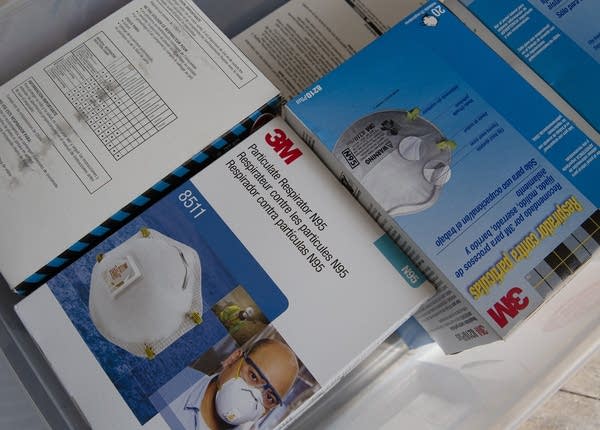3M CEO defends Maplewood-based company against Trump Twitter attack

A collection of boxed 3M N95 masks.
Christine T. Nguyen | MPR News
Go Deeper.
Create an account or log in to save stories.
Like this?
Thanks for liking this story! We have added it to a list of your favorite stories.


